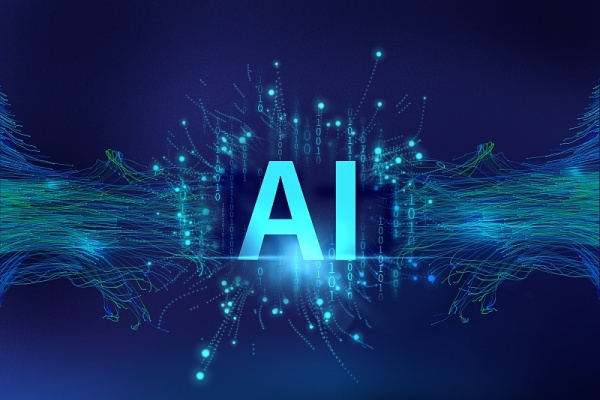
- Home
- Media Center
-
Events
- Wuzhen Summit
- Regional Forums
- Practice Cases of Jointly Building a Community with a Shared Future in Cyberspace
- World Internet Conference Awards for Pioneering Science and Technology
- The Light of Internet Expo
- Straight to Wuzhen Competition
- Global Youth Leadership Program
- WIC Distinguished Contribution Award
- Membership
- Research & Cooperation
- Digital Academy
-
Reports
- Collection of cases on Jointly Building a Community with a Shared Future in Cyberspace
- Collection of Shortlisted Achievements of World Internet Conference Awards for Pioneering Science and Technology
- Reports on Artificial Intelligence
- Reports on Cross — Border Ecommerce
- Reports on Data
- Outcomes of Think Tank Cooperation Program
- Series on Sovereignty in Cyberspace Theory and Practice
- Other Achievements
- About WIC
- 中文 | EN

AI education should be more than test-centric learning

[Photo/VCG]
There is widespread acknowledgement that "AI + education" is profoundly transforming traditional educational methods and learning experiences. Since AI is driving changes in traditional education at an unprecedented speed and scale, the urgent question is: How to seize this opportunity and better integrate AI into K-12 education?
Several education technology (EdTech) companies have ventured into the realm of artificial intelligence in recent times. Giving some idea about why the EdTech firms have done so, Li Ying, CEO of Xiaodu Technology, Baidu's smart speaker unit, said during an event themed "AI empowering K-12 education", on Aug 21 that creative children are more likely to stand out in the AI era and use AI thinking to change the world.
Two days later, Jingzhunxue (Precise Learning) announced a breakthrough in AI voice interaction technology, successfully testing China's first end-to-end voice model which can facilitate voice-to-voice interactions.
However, the current "AI + education" initiatives by EdTech companies are largely focused on disseminating knowledge-based education, helping students complete homework and other targeted exercises, which might improve their efficiency but could reinforce test-oriented education. To truly revolutionize traditional education, it is essential to shift away from the test-centric, utilitarian trend and focus on improving students' digital literacy instead of merely enhancing their academic knowledge.
Two worrisome trends have emerged due to the EdTech companies' venturing into the "AI + education" realm. First, the emphasis on knowledge has led to the use of AI teachers, often learning machines, to impart subject-based education to students. Many would say that this trend has led to a boom in the AI learning machine market. But the boom is not without controversy. Some see it as an efficient learning tool, while others argue that it skirts the boundaries of online subject tutoring, commercializing online education.
These devices often provide tutoring content that mirrors online education, including video lessons, explanations and interactive consultations. The market for such machines has expanded, partly due to the "double reduction" policy which strictly limits subject tutoring in compulsory education, prompting parents to buy AI learning machines for their children.
Second, the focus on test-preparation has resulted in much of the "AI +" and internet-based education being promoted by schools and tutoring centers, which is being used to prepare for exams and improve scores. Some AI learning machines even use facial recognition technology to monitor students' expressions and behaviors, in order to discipline them and force them to concentrate on lessons, which is against the true purpose of education, and misuse of the positive potential of "AI +" and internet-based education, which is providing learners with more resources, transforming traditional learning methods, and fostering enquiry and innovation.
Educators have warned that AI will bring about disruptive changes in the job market. To adapt to these changes, educators need to take measures which would shift the focus of education from imparting knowledge to teaching students how to learn, and be involved in creation- and innovation-oriented endeavors. For that, the educators have to reverse the trend of knowledge-based and test-oriented education.
The problem is that the current application of AI models in education, which emphasizes knowledge, has gone astray.
The choices made by EdTech companies are understandable, as they reflect the broader trends in China's education system, where knowledge-focused and test-oriented tendencies are the result of the rapid development of AI. But this mirrors the exam-centric, utilitarian and short-sighted nature of China's basic education system. Without addressing these issues, the technological advancements in "AI +" and internet-based education will only exacerbate the focus on exams and utility, instead of fostering innovation in talent cultivation and improving the quality of education.
Given the rapid advancements in AI, China's EdTech companies must explore how to leverage technology to cultivate top talents. They should move away from using subject-based training models to promote "AI + education" and, instead, explore how AI education models can enhance students' creativity and imagination.
The goal of the "double reduction" policy is to lighten students' academic and tutoring burden, giving them more time for self-development. And "AI + education" should play a key role in facilitating students' self-development.

The World Internet Conference (WIC) was established as an international organization on July 12, 2022, headquartered in Beijing, China. It was jointly initiated by Global System for Mobile Communication Association (GSMA), National Computer Network Emergency Response Technical Team/Coordination Center of China (CNCERT), China Internet Network Information Center (CNNIC), Alibaba Group, Tencent, and Zhijiang Lab.





